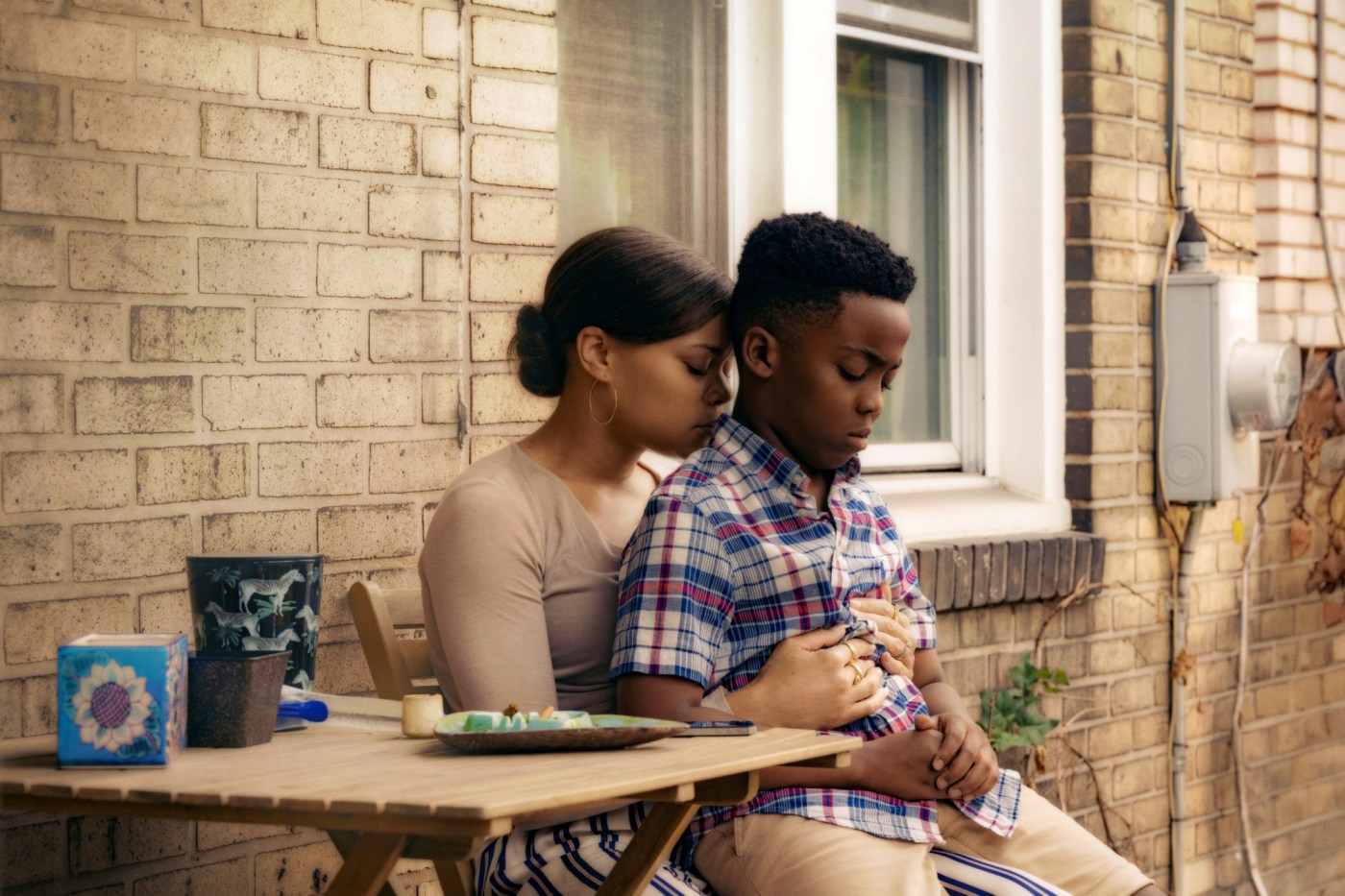
‘The Deliverance’ review: Lee Daniels’ supernatural thriller doesn’t deliver
Filmmaker Lee Daniels is less interested in terrifying viewers and more concerned with nudging them to find faith with “The Deliverance.”
Landing on Netflix this week after a limited theatrical release, the supernatural horror thriller largely eschews jump scares in favor of a slow build to an extended exorcism sequence.
That all sounds perfectly appealing — and “The Deliverance” has its strengths, some effective character-driven moments among them — but the ultimate result is a movie that lacks some punch in its first half and, like some other exorcism-based flicks that have come before it, comes across as more ridiculous than dramatically satisfying in its second.
Penned by David Coggeshall (“The Family Plan”) and Elijah Bynum (“Magazine Dreams”), the latest from the director of films including “Monster’s Ball” (2001) and “Lee Daniels’ The Butler” (2013) is inspired by the alleged haunting of the Ammons family in the early 2010s in Gary, Indiana. “The Deliverance” keeps the period but moves the action to Pittsburgh, which is where we meet the fictional Jackson family.
Single mother Ebony Jackson (Andra Day) is doing her best to raise her three kids — teens Nate (Caleb McLaughlin of “Stranger Things”) and Shante (Demi Singleton, “King Richard”) and younger son Andre (Anthony B. Jenkins) — while struggling to make enough money and drinking at least a bit too much. She also has welcomed into their new home — the family’s third in a brief stretch — her mother, Alberta (Glenn Close).
Ebony’s relationship with her mother is complicated, thanks to a not-so-pleasant childhood, even now that Alberta has found Christianity and seemingly has turned her life around for the better. (Alberta sticks out visually at her predominantly Black church, but this is a white woman who has lived her life as part of the Black community.) To complicate matters for the Jacksons, Alberta is undergoing treatment for cancer.
Their lives are further complicated by Andre’s apparent conversations with Trey, someone, the boy says, who lives in a hole in the basement — a basement full of flies that are a source of frustration to Ebony — and sometimes spends time in his closet.
That there is indeed an evil entity at play is baked into a film such as “The Deliverance,” but the movie nonetheless does its obligatory dance, spending significant time suggesting the spirit’s actions — including inflicting physical harm on the children — are the work of Ebony.
Among the highly concerned is determined social worker Cynthia (Mo’Nique, who was so memorable in Daniels’ acclaimed 2009 drama, “Precious”), who is frustrated by the secretive Ebony while genuinely wanting to help her.
Caleb McGlaughlin, left, Anthony B. Jenkins and Mo’Nique share a scene in “The Deliverance.” (Courtesy of Netflix)
Another woman interested in Ebony’s affairs is Bernice (Aunjanue Ellis-Taylor, “The Supremes at Earl’s All-You-Can-Eat”), who bills herself as an apostle and very much believes that an evil spirit is responsible for the family’s woes — and with good reason. And, for the record, she explains what she is offering is a deliverance, not an exorcism, even if the climactic sequence lying ahead feels extremely exorcism-like.
Related Articles
Column: In ‘Blink Twice,’ director Zoë Kravitz was after cinematic sense of trouble in paradise
Fall movie preview: ‘Gladiator II,’ ‘Wicked’ and much more
Hollywood is slowly getting back to work, but the days of peak TV aren’t coming back
‘Sugarcane’ delves into horrific past at Indigenous boarding school
‘Blink Twice’ review: This nervy, off-center thriller is a breakthrough for Channing Tatum
Though not its selling point, “The Deliverance” is at its most compelling when it works as a portrait of a Black family trying to get by with not enough money and without its male figure present. (Split from Ebony, the children’s father is away in Iraq, we learn.)
That this component of the film works as well as it does is due in part to the solid work from Day, a multi-talented performer who portrayed singer Billie Holiday in Daniels’ previous directorial effort, 2021’s similarly promising but ultimately middling “The United States vs. Billie Holiday.” Day holds your interest throughout the affair as its often-fiery protagonist.
The same certainly can be said for veteran actress Close (“Fatal Attraction,” “101 Dalmatians”), who told People magazine she initially had no clue how to play Alberta, with Daniels apparently telling her that “every Black person knows a white woman like this, but not every white person knows a white woman like this.” Close embraces all that comes with the role, including an over-the-top moment or two it asks of her deep into the film’s supernatural section.
Glenn Close portrays Alberta, who is battling cancer, in “The Deliverance.” (Courtesy of Netflix)
Alberta and Ebony’s complex mother-daughter dynamic also is more intriguing than the climactic scenes, as creepy and uncomfortable as some of them are.
Daniels hopes the powers of Christ will compel viewers — or at least, as he says in his director’s statement, that “audiences are jolted into finding their higher power.”
That’s all well and good, but it’s tough, at the end of the day, to recommend “The Deliverance” when we wish parts of it were used to construct a largely different film.
‘The Deliverance’
Where: Netflix.
When: Aug. 30.
Rated: R for violent content, language throughout and some sexual references.
Runtime: 1 hour, 52 minutes.
Stars (of four): 2.


